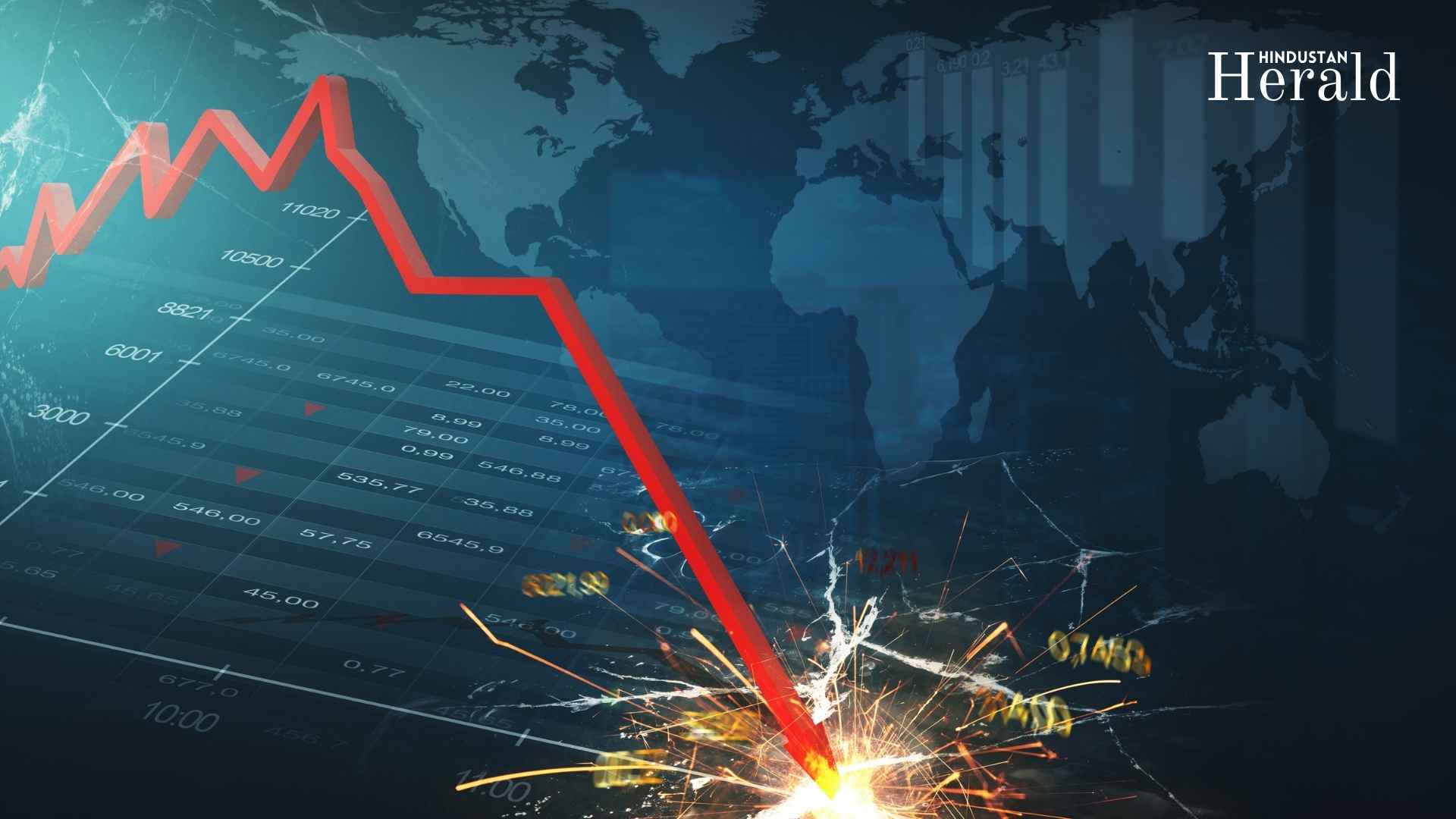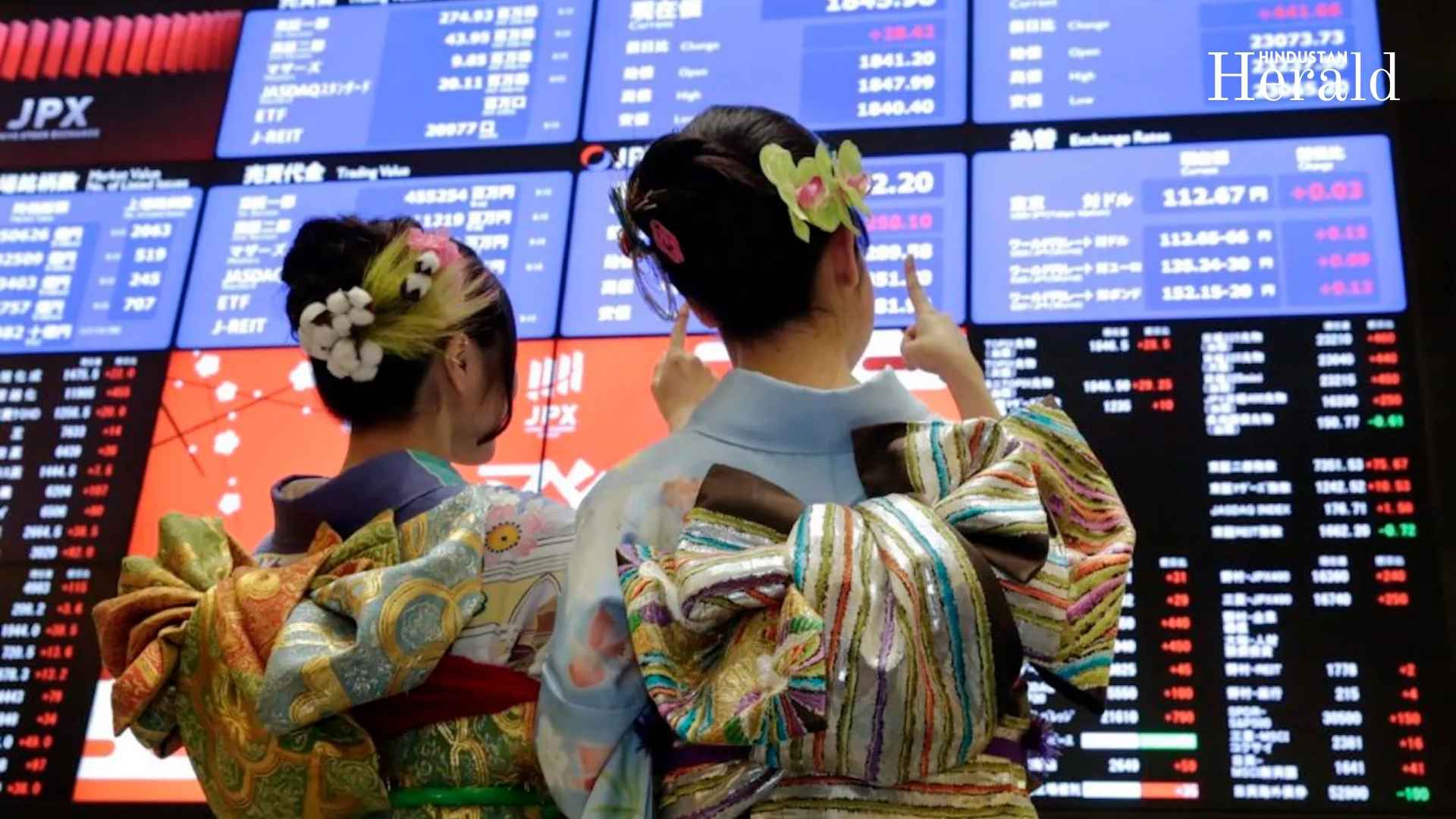Black Monday: How Trump’s Tariffs Could Trigger a Financial Crisis Similar to 1987

Key Highlights:
The term Black Monday has once again found its way into financial discussions, thanks to recent economic instability caused by U.S. President Donald Trump’s global tariff policies. As global markets have been hit hard by trade tensions, the risk of a financial collapse similar to the infamous 1987 stock market crash looms large.
What Is Black Monday?
Black Monday, October 19, 1987, was one of the most severe stock market crashes in history. On that day, the Dow Jones Industrial Average (DJIA) plummeted by a staggering 22.6%, causing widespread panic and triggering a global financial downturn. Other major indexes, including the S&P 500, also experienced severe losses, with the S&P 500 dropping by 30%.
The crash led to worldwide losses estimated at over $1.7 trillion. The event, often associated with fears of a new Great Depression, left many investors in shock and set the stage for a prolonged period of financial uncertainty. It remains one of the most memorable financial crises in history, often cited as a warning of the potential consequences of unexpected economic shocks.
Tariffs and Their Role in Triggering a Market Crash
In 2025, the global economy is again facing uncertainties, this time due to President Trump’s sweeping tariff policies. The new tariffs, which affect imports from over 90 countries, have already caused significant turmoil in global markets. As Trump pushes for tariffs on China, the European Union, Japan, and Vietnam, market analysts are warning of the potential for another Black Monday scenario.
The Immediate Impact of Trump’s Tariffs
The fallout from Trump’s tariff announcement was swift and severe. In the two days following the “Liberation Day” tariff announcement, the Dow Jones Industrial Average plunged by 3,910 points, making it the worst two-day loss since the pandemic. The S&P 500 also dropped nearly 6%, while the tech-heavy NASDAQ saw a similar decline. The global market value was wiped out by a staggering $6.6 trillion, leaving investors in panic.
Market experts, including CNBC host Jim Cramer, have expressed concerns that the global economy could spiral into a recession similar to the 1987 crash if these tariffs are not rolled back or softened. Cramer pointed out that the current economic conditions are reminiscent of the 1987 crash, where a rapid series of losses led to a massive 22% drop on Black Monday.
Trump’s response to the market turmoil has been dismissive. In his usual nonchalant style, he claimed that the crash was simply part of the process of “taking the medicine” to fix the economy. He further added that his policies were “supercharging” the economy, despite the market’s dramatic drop.
The Effect on Billionaires and Big Business
Even as the market flounders, some wealthy individuals are finding ways to profit. Tech billionaires like Elon Musk, Jeff Bezos, and Mark Zuckerberg have seen their fortunes plummet as shares in their companies dropped following the tariff announcements. Musk alone lost $11 billion on Thursday due to the fall in Tesla’s stock price.
However, Trump remains optimistic, suggesting that the market is a great opportunity for investors to “get rich.” He dismissed the market losses as temporary and emphasized the long-term benefits of his economic policies. In a post on Truth Social, Trump stated: “Big business is not worried about the tariffs, because they know they are here to stay, but they are focused on the BIG, BEAUTIFUL DEAL, which will SUPERCHARGE our economy.”
What Does the Future Hold?
The possibility of a Black Monday scenario is more real than ever. With global markets already reeling from Trump’s tariffs, the fear of further economic fallout is palpable. The S&P 500, Dow Jones, and NASDAQ have experienced significant losses, and the outlook for the near future remains uncertain. The world is watching closely as the Trump administration continues to push its tariff policies, despite the growing backlash from global markets.
Black Monday 1987 vs. 2025: Parallels and Differences
While there are undeniable similarities between the 1987 stock market crash and the current situation, there are also notable differences. In 1987, the global economy was much more stable, with fewer trade imbalances and less geopolitical tension. Today, however, the world is already dealing with the ongoing effects of the COVID-19 pandemic, rising inflation, and escalating trade tensions, all of which make the current economic landscape more volatile.
Nevertheless, the parallels between the two events are clear. Both crises involve sudden, dramatic shifts in market conditions, leading to widespread panic and financial instability. If Trump’s tariffs continue to escalate, the risk of a Black Monday market crash could become a reality.
Is Another Black Monday Coming?
As the world watches closely, the question remains: Could we witness another Black Monday in 2025? While it’s impossible to predict with certainty, the current economic climate — marked by rising tariffs, trade tensions, and investor fear — certainly resembles the conditions that led to the 1987 crash. If Trump’s policies continue on their current path, we may be facing another financial crisis that could rival the infamous Black Monday in terms of global impact.
For now, investors are left with one question: Will the markets recover, or will the economic fallout from Trump’s tariffs lead us into another period of financial chaos?
The Hindustan Herald Is Your Source For The Latest In Business, Entertainment, Lifestyle, Breaking News, And Other News. Please Follow Us On Facebook, Instagram, Twitter, And LinkedIn To Receive Instantaneous Updates. Also Don’t Forget To Subscribe Our Telegram Channel @hindustanherald








